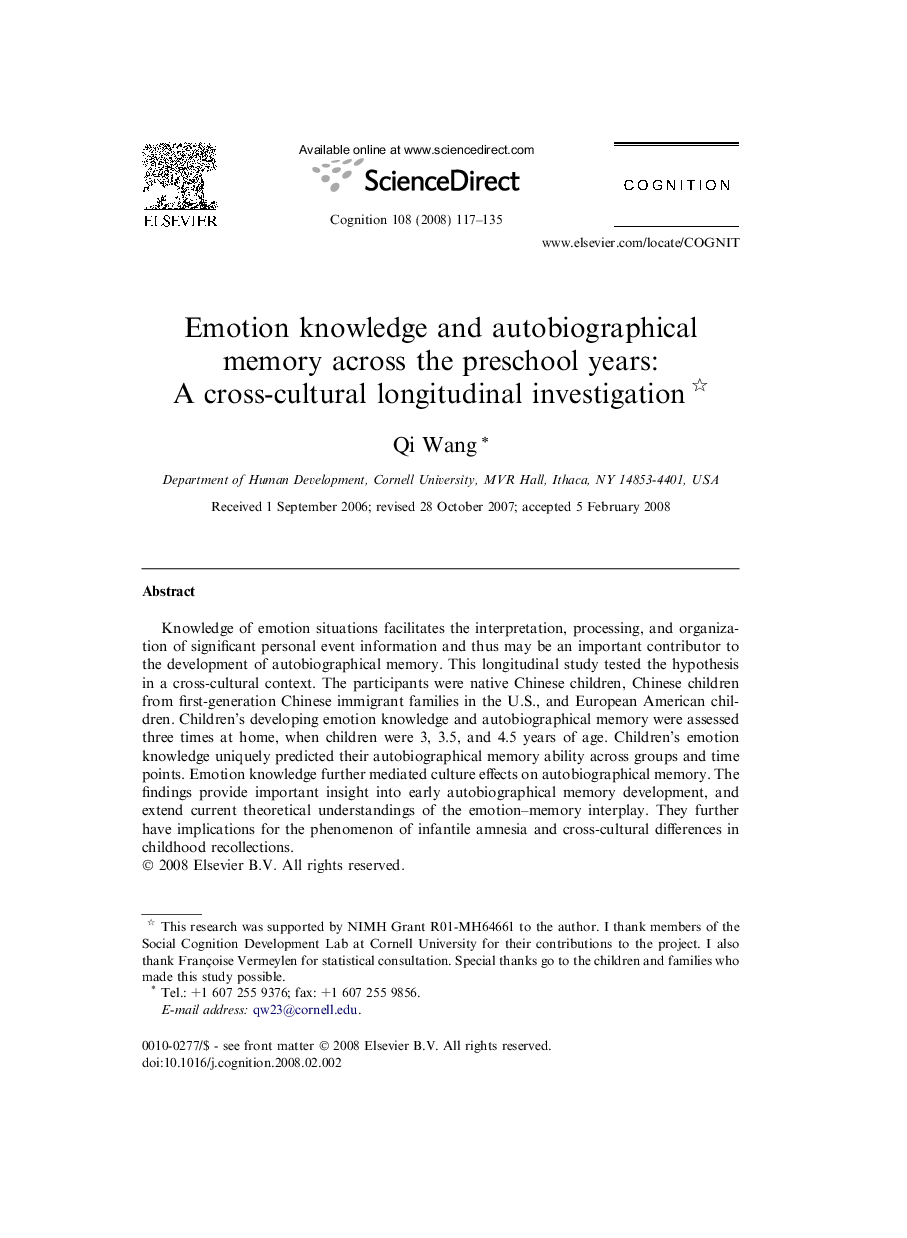| Article ID | Journal | Published Year | Pages | File Type |
|---|---|---|---|---|
| 926682 | Cognition | 2008 | 19 Pages |
Knowledge of emotion situations facilitates the interpretation, processing, and organization of significant personal event information and thus may be an important contributor to the development of autobiographical memory. This longitudinal study tested the hypothesis in a cross-cultural context. The participants were native Chinese children, Chinese children from first-generation Chinese immigrant families in the U.S., and European American children. Children’s developing emotion knowledge and autobiographical memory were assessed three times at home, when children were 3, 3.5, and 4.5 years of age. Children’s emotion knowledge uniquely predicted their autobiographical memory ability across groups and time points. Emotion knowledge further mediated culture effects on autobiographical memory. The findings provide important insight into early autobiographical memory development, and extend current theoretical understandings of the emotion–memory interplay. They further have implications for the phenomenon of infantile amnesia and cross-cultural differences in childhood recollections.
